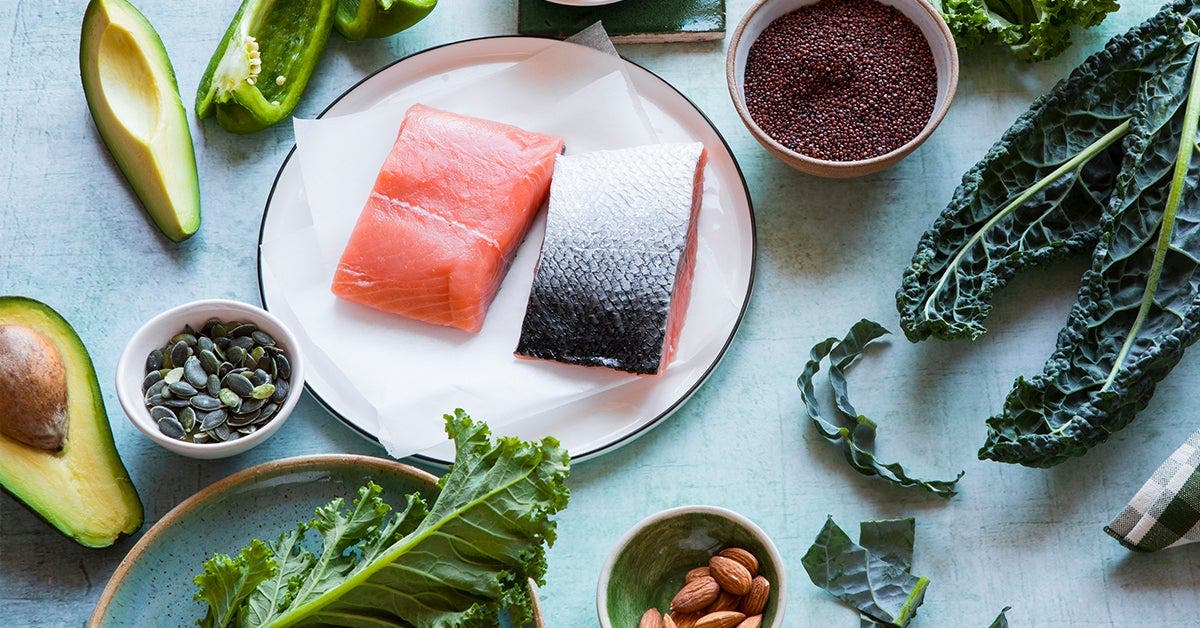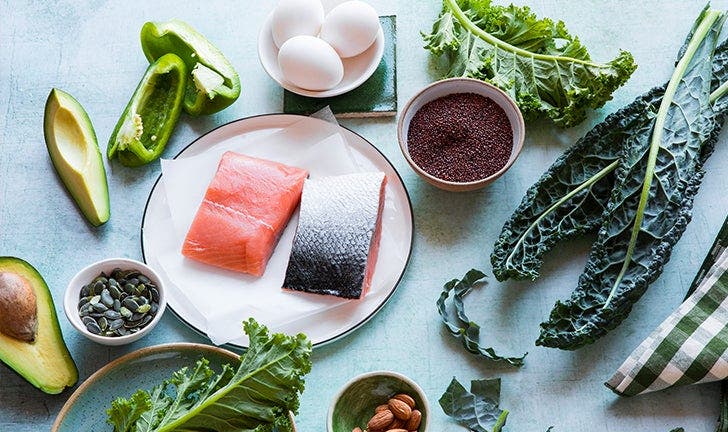Fats 101


Dietary fats include all fats and oils naturally found in animal and plant foods, as well as those used in cooking or added to processed foods. Fats play many important roles in your body, including providing a source of energy, protecting organs, keeping the body warm, producing hormones, and helping with the absorption of nutrients.
The Difference Between Saturated and Unsaturated Fats
Many people mistakenly believe that eating foods high in fat is unhealthy for them and that it will lead to weight gain. The truth is, not all fats are created equal. Ideally, anywhere from 20 to 35 percent of your daily calorie intake should come from fat. The key is to choose the right type of fat, replacing the less healthy saturated fats with healthier unsaturated fats:
Saturated fats are mainly found in animal-based foods such as beef, pork, chicken, and dairy products (milk, cream, butter, and cheese), as well as vegetable oils such as coconut and palm kernel oils. They are also found in fast foods and processed foods made with these ingredients such as cakes, cookies, and ice cream.
Saturated fat doesn’t offer much nutritional benefit and it raises “bad” cholesterol levels, which increases your risk of heart disease. Because of this, it’s best to limit your intake of saturated fat.
Unsaturated fats provide essential nutrients and they support heart health by reducing “bad” cholesterol and increasing “good” cholesterol. There are two types of unsaturated fat, and most foods contain a combination of them:
- Monounsaturated fats are healthy fats that are naturally found in many plant-based liquid oils such as olive oil, canola oil, and peanut oil. Other sources include avocadoes, peanut butter, nuts, and seeds.
- Polyunsaturated fats are healthy fats that include omega-3 and omega-6 essential fats, which your body cannot produce on its own and must be obtained from food. Omega-3 fats are found in oily fish such as salmon, mackerel, trout, and sardines. Other sources include walnuts, flaxseeds, and products that have omega-3 fats added to them, such as some milks and eggs. Omega-6 fats are found in plant-based oils such as safflower, sunflower, and corn oils. Nuts such as almonds and pecans, and seeds, such as sunflower and sesame seeds, are also good sources of omega-6 fats.
How to Opt for Unsaturated Alternatives
You don’t need to ban fat from your diet. Many foods high in fat can still be enjoyed while you are trying to lose weight, and dietary fat can provide numerous health benefits. What is most important is to focus on replacing less healthy saturated fats with healthier unsaturated fats. Here are some tips for how to do that:
Swap Your Protein Sources. If you’re used to including beef or pork as part of your main meal, switch it up for a serving of oily fish, such as salmon, trout, mackerel, or tuna. Fish is an excellent source of omega-3 polyunsaturated fat. It tastes delicious on top of a salad, made into fish tacos, or grilled and served alongside some freshly prepared vegetables.
Stock Up on Heart-Healthy Oils. There are many different oils available on the market today. Based on their cooking properties and health benefits, reach for extra virgin olive oil most often. Because of its high content of monounsaturated fats and some polyunsaturated fat, consumption of olive oil supports heart health. Other plant-based oils such as canola, peanut, safflower, and sunflower oils can be used in place of oils that are higher in saturated fats, such as coconut and palm oils.
Try a New Spread. If you’re a fan of spreading butter or cream cheese onto toast, swap these toppings for avocado or nut butters instead. If you’re at a restaurant and the breadbasket comes along with butter, ask for some olive oil and balsamic vinegar for dipping instead.
Replace Your Crunchy Toppings. If you tend to enjoy soups or salads with croutons sprinkled on top, try using raw or toasted seeds instead. Pumpkin and sunflower seeds for example, provide the same type of crunchy texture to your dish, but with the additional health benefits of unsaturated fats.
Switch Up Your Snacks. If ice cream, cookies, or chips are your go-to snack choices, consider swapping them for a handful of nuts and seeds instead. You can make your own trail mix with a combination of walnuts, almonds or cashews, along with some sesame, pumpkin and flax seeds. If you want to sweeten the taste, you can toss some raisins or dried cranberries into this heart-healthy mix.
